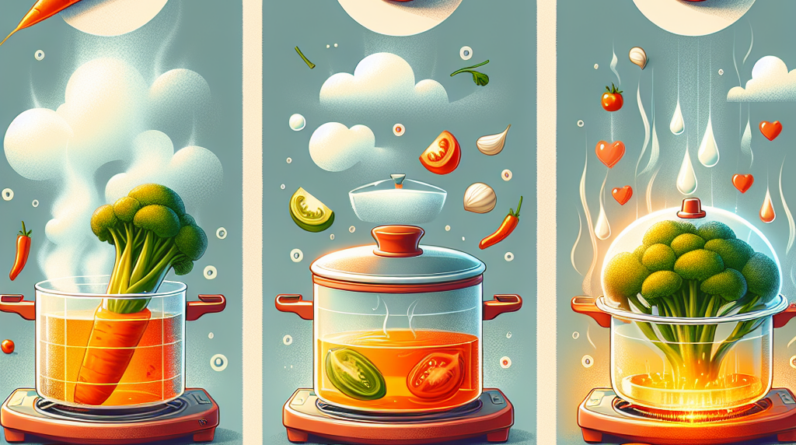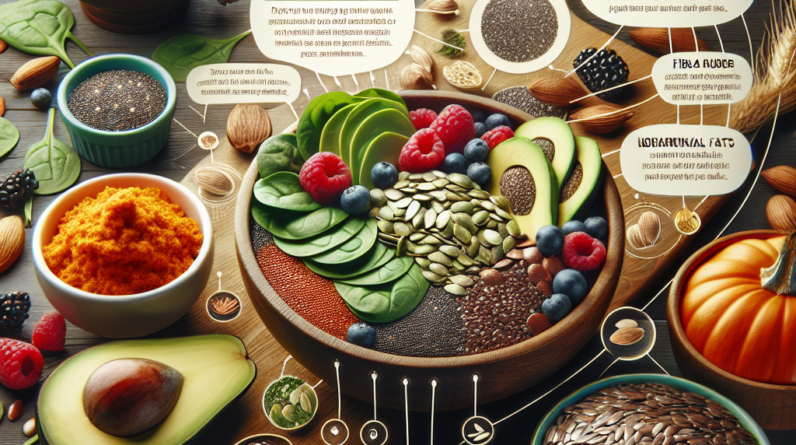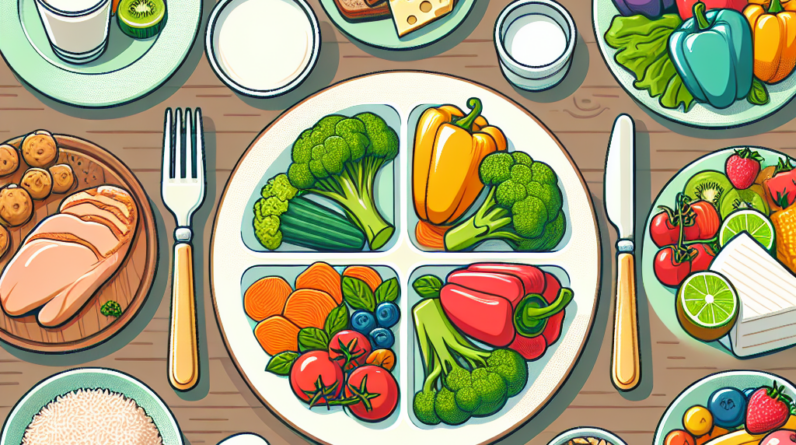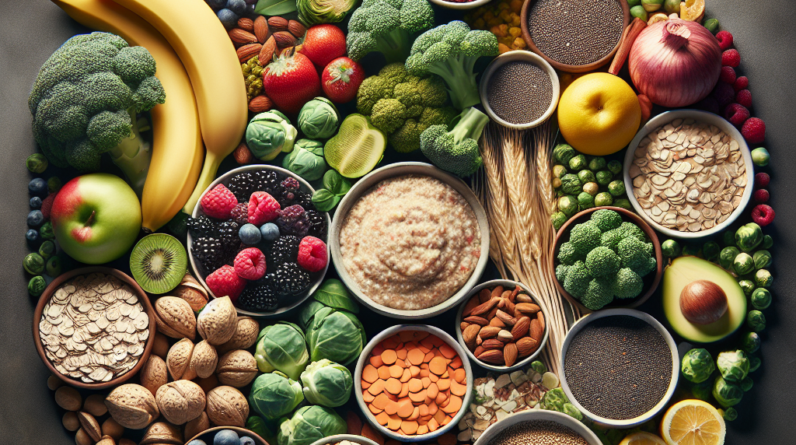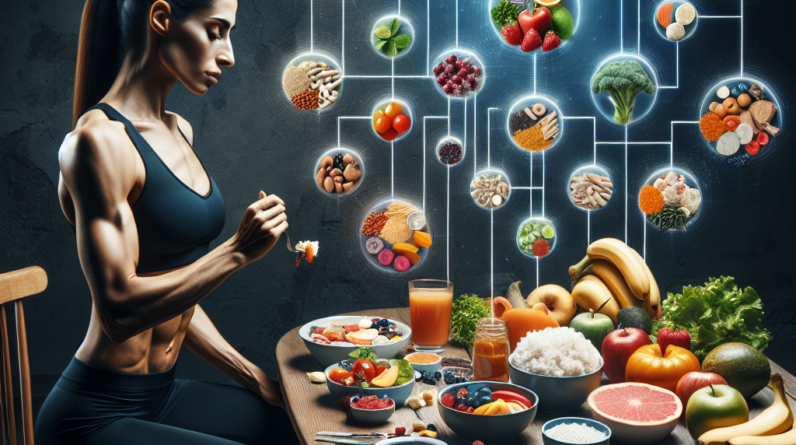
Understanding Nutritional Needs
Carbohydrates for Fuel
When I first decided to go vegetarian as an athlete, one of the biggest eye-openers for me was understanding the role of carbohydrates. You might think that carbs are just for piling on the pasta before a race, but they’re crucial for your overall energy levels. Carbs are basically the body’s fuel, and as athletes, we need to be aware of what types we are consuming.
Get a Huge Discount and Bonus! Try for 90 Days Risk Free
So, opt for whole grains, fruits, and veggies. Trust me, loading up on brown rice instead of white can make a world of difference in your energy levels. I found that incorporating quinoa and sweet potatoes not only gave me lasting energy but also kept my taste buds happy!
Don’t forget about timing, too. Eating a carb-rich meal a few hours before an event and keeping smaller snacks handy for quick energy boosts can keep you racing at your best.
Protein Sources
Another biggie is protein. Now, if you’re thinking “How do I get enough protein without meat?” I’ve got you covered! There are tons of vegetarian sources that pack a punch. Beans, lentils, tofu, and even seitan—each of these can easily slide into your meals.
I like to whip up a quick lentil stew or have some grilled tofu in my salad. It’s not just about hitting your protein goals; it’s also about variety. Mixing it up keeps your meals exciting and helps with muscles and recovery.
For days when I need an extra boost, I often turn to plant-based protein powders. They’re super convenient for post-workout shakes, especially when you’ve just crushed a session and need to refuel.
Micronutrients Matter
Let’s dive into those vitamins and minerals! Ever heard of iron and vitamin B12? They’re essential for vegetarians, especially if you’re active. Without enough iron, you could feel way more sluggish than you’d like, and B12 is vital for energy and brain function.
To keep things balanced, I regularly throw in leafy greens like spinach and supplement with nutritional yeast for that B12 punch. It’s cheesy (not literally, but you get it) and rich in flavor when sprinkled on your favorite dishes!
Keep an eye on calcium, too, especially if you’re sweating a lot. Incorporating sources like almond milk, fortified tofu, and leafy greens can keep those bones in top shape.
Get a Huge Discount and Bonus! Try for 90 Days Risk Free
Meal Planning and Preparation
Building a Balanced Plate
I can’t stress enough how helpful meal prep is. When I plan my meals in advance, I find I’m far less tempted to grab unhealthy snacks. A balanced plate for me usually has a source of protein, a great serving of veggies, and some healthy fats.
Your plate should be as colorful as possible—it’s not just about what looks pretty, but also about what you’re getting nutritionally. Adding avocados and nuts to my meals not only makes them taste great but keeps me feeling full longer.
Experimenting with spices and herbs can completely transform your meals, too! A little cumin, garlic, and ginger can make a veggie stir-fry feel like a five-star dish.
Convenience Foods
Come on, let’s be real. Sometimes life gets crazy, and we don’t have time to whip up a gourmet meal. That’s why I’ve learned to utilize quick and nutritious convenience foods. Stuff like pre-cooked quinoa, canned beans, or frozen veggies can be lifesavers.
Need a Serious Energy BOOST? Huge Discount Try for 90 Days Risk Free
When you’re in a bind, having those quick options ready to go makes it easier to stick to your vegetarian eating plan. You can throw together a fulfilling meal in less than 15 minutes if you have the right staples on hand!
Just remember to check those labels! Stay away from any hidden sugars or additives. Sometimes the most convenient foods can also be the sneakiest when it comes to poor nutrition.
Batch Cooking
One of my favorite hacks is batch cooking. Dedicating a few hours on the weekend to prepare meals can really pay off during busy weekdays. I’ll make a huge batch of chili or a hearty vegetable soup, portion them out, and voilà—simple, balanced meals ready to go!
This not only saves precious time but also keeps you on track with your nutrition. Plus, there’s something really satisfying about opening your fridge and seeing meals lined up like little soldiers ready for action!
Another perk? You’ll be less likely to fall off the wagon when those cravings hit. With healthy meals waiting for me in the fridge, I’m much less tempted to grab takeout.
Staying Hydrated
Understanding Your Fluid Needs
You’d be surprised how often hydration gets overlooked! Especially as an athlete, I’ve learned that staying hydrated is key to performance. Water is vital, but I’ve also embraced electrolyte drinks for those intense training days.
Every individual has different hydration needs based on activity levels and climate, so it’s important to find what’s right for you. For me, I make a habit of carrying a reusable water bottle everywhere I go. It’s a constant reminder to sip throughout the day!
Often, I’ll infuse my water with fruits like lemon or berries for a little flavor change. It makes a boring topic much more exciting!
Good Health Solution is Easier Than Most People Think!
Take a Look for Yourself!
Signs of Dehydration
It’s important to recognize the signs of dehydration. Headaches, fatigue, and even decreased performance are all signals your body sends out. I’ve learned the hard way that ignoring these signs is a recipe for disaster.
If I feel a headache coming on, I immediately reach for water instead of coffee. It’s a simple reminder to check in with myself and my hydration status.
Make it a habit to constantly assess how you’re feeling during workouts. If you notice fatigue sneaking in, it might just be your body’s way of saying, “Hey, I need some water!”
Hydration During Training
Making a hydration plan for workouts has also been a game-changer for me. I aim to drink water before, during, and after exercise. If I’m doing a long run or intense session, I make sure to sip water at regular intervals.
Sometimes, I’ll even go for coconut water after a workout—it’s packed with electrolytes! Keeping a timeline of my fluid intake helps keep me accountable.
Listen to your body; it’s your best coach! Everyone’s hydration needs can vary with the intensity of workouts, so it’s always good to tailor your plan to what you feel is best for you.
Listening to Your Body
Adapting to Your Needs
Over the years, I’ve learned that listening to my body is the most crucial aspect of being a vegetarian athlete. If something feels off—whether that’s digestion issues or low energy levels—I take a moment to analyze what I’ve been consuming.
For example, I’ve found that if I have too much raw food in my diet, my stomach doesn’t love it as much. Balancing raw and cooked foods has made a significant difference in how I feel.
Each body is unique, and what works wonders for one person might not work for another. I keep a journal of my meals and how they make me feel, which helps in adapting my diet to suit my needs.
Mindful Eating
Mindful eating has been a revelation for me. Instead of munching through meals half-heartedly, I make it a point to sit down, appreciate the colors and aromas, and truly enjoy my food. It’s more than just nourishing my body; it’s a practice that allows me to slow down in our fast-paced world.
This practice can help you recognize when you’re hungry or full, leading to better overall choices. Plus, it makes me appreciate my meals way more. Sharing food with friends and talking about the dishes we’ve prepared can turn a meal into an experience!
Sometimes I’ll turn off my phone and put on some chill music during meals and really focus on the flavors and textures. It’s amazing how much more I enjoy what I’m eating when I’m present!
Making Adjustments
Not every day is going to be perfect; some days I may feel sluggish or overly excited and miscalculate my energy needs. Adapting to those moments is vital. If I feel low on energy, I might opt for a more nutrient-dense snack like a smoothie to recharge.
Listening to my body means making adjustments based on how I’m feeling rather than sticking to a rigid plan. This flexibility has been key to maintaining my energy levels during rigorous training and competition.
Having a variety of options and being comfortable with making changes on the fly has allowed me to enjoy my journey as an athlete while sticking to my vegetarian lifestyle.
FAQ
1. Is it possible to get enough protein as a vegetarian athlete?
Absolutely! There are many great sources of protein available, such as beans, lentils, tofu, tempeh, and quinoa. Incorporating these foods into your meals can easily help you meet your protein needs.
2. How do I ensure I get enough vitamins and minerals?
Focus on eating a variety of colorful fruits and vegetables, along with whole grains and legumes. You might also consider supplements for nutrients like vitamin B12 and iron, but be sure to consult with a healthcare professional.
3. Can vegetarian athletes perform at the same level as meat-eaters?
Of course! Many vegetarian athletes excel in their sports. As long as you plan your diet carefully, ensuring you’re getting the necessary nutrients, there’s no reason you can’t perform at a high level.
4. What are some quick meal ideas for busy athletes?
Some quick vegetarian meal ideas include veggie wraps, stir-fries, smoothies, or grain bowls with assorted toppings. Don’t underestimate the power of batch cooking—it can save you tons of time during busy weeks!
5. How can I stay motivated to maintain my vegetarian diet?
Staying motivated can often be about keeping things fun and fresh. Experiment with new recipes, try out diverse cuisines, and keep a meal journal to track your favorites. Connecting with fellow vegetarian athletes can also provide a great support system!



